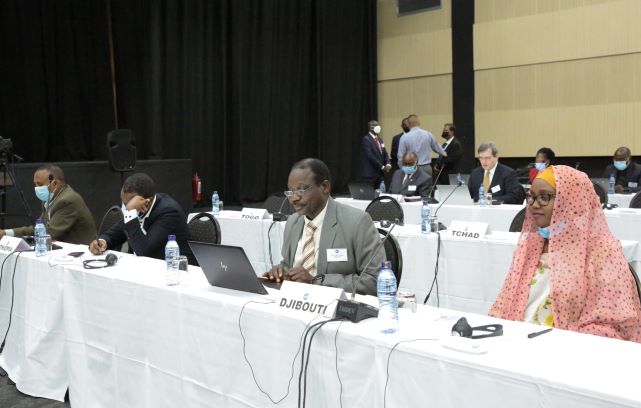
Member States need to migrate from traditional national statistical systems to emerging data ecosystems to ensure reliable statistics which are key elements towards better measurement, monitoring, and management of results.
The call was made during the opening of a four-day regional workshop on National Strategies for Development of Statistics (NSDS) that began Monday 14 March 2022, in Lusaka Zambia. It was organized under the auspices of the Statistical Capacity Building Program Phase 5.
The objective of the workshop is to improve provision and use of official statistics in Africa through the NSDS framework that uses the sectoral approach. It is also aimed at enabling participants to employ best practices in the design of NSDS through specific resource materials including the Guide to Mainstreaming Sectors into the National Statistical System (2007).
Participants are drawn from 37 African Development Fund Countries representing National Statistics Offices, the African Development Bank (AfDB), the United Nations Economic Commission for Africa (UNECA) and PARIS21. Others are from the African Union Commission (AUC), the UN Women, SADC, EAC, IGAD, AFRISTAT and Statistical Training Institutes.
Acting Secretary General, Dr Dev Haman, officially opened the workshop. He called on all statistical bodies to embrace technologies that can be used to collect and process data quickly and accurately for decision makers in the Member States as well as globally.
“There is need to work with member states as they develop their NSDS and to align to the COMESA Regional Strategy for the Development of Statistics (RSDS) and the Strategy for Harmonization of Statistics (SHASA 2),” he said. “All this calls for close collaboration from bottom up i.e., national, regional and continental.”
During the workshop participants will be trained on the most recent international guidelines on the design of the NSDS/RSDS, as well as on development of sector statistics plans. The workshop will also undertake capacity building related to issues of institutional aspects of the statistical systems. It seeks to ensure that member states mainstream gender in all their programmes related to statistics.
Director for African Centre for Statistics at the Economic Commission for Africa Mr Oliver Chinganya emphasized the need for modernization of statistical systems if the profession is to remain relevant to the development of world economies.
“With the advent of technology, there is need to identify new partners in development with tools and solutions, such as the academia, private sector players, non-governmental organizations and civil society organizations,” he added.
Facilitation of the training is being done by two international statistical consultants. They are Prof. Ben Kiregyera, one of the originators of the NSDS concept and the author of the first NSDS guidelines that were published by PARIS21 in 2005. The other is Mr. Neil Dourmashkin, a specialist in “making good quality statistics available” and in using this information to inform public policies and private sector decisions in South-East Asia, Africa, Europe and elsewhere.

